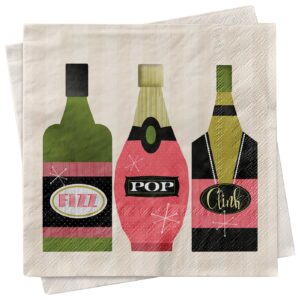Literary Admirers

We live in our stories. That’s what it says on a poster hanging in a quaint area of a massive bookshop in the center of a bustling city. And it’s true, for literary aficionados, reading develops our imagination, broadens our verbiage and boosts our repartee.
But what does the process for selecting which books take up shelf space entail?
There’s no one answer. Perhaps a buyer is ardent about a specific genre, or judges their picks based on a specific author or, the one thing we’re taught never to do, the cover. For New York City’s famed Strand Bookstore — and many others — the buyers are always thinking about the reader.
“What do they want to learn? What inspires them? What excites them? How can (we) satisfy their curiosity?” said Leigh Altshuler, Strand Book Store’s communications director. “In addition to new titles, Strand carries a large collection of used books. Our buyers look rigorously at every book brought to us reviewing condition, sales and records of the past 90 years.” (Condition in this case pertains to the collection of used, rare and first-edition books the shop carries and may not apply to most shops.)
On the other side of the fence, publishing companies such as teNeues, Chronicle Books, Quail Ridge and the like are doing their part to pick up pieces that will get noticed. “We look for titles that will surprise and delight our customers,” said Lisa Bach, director of independent special sales, Chronicle Books. “We have a very skilled in-house creative team that work with talented artists, authors and designers to create new and exciting gift formats. Do we love the title? Who would we give it to? If we are excited and can instantly imagine who will receive the gift, then that helps make us much more passionate (and) excited about publishing the title.”
Some of these new titles that excite them include the newest addition to ever-popular Star Wars series: Star Wars Super Graphic; Letters for the Year; Zingerman’s Bakehouse and After Dinner Amusements. A lot of Chronicle’s — and other publishing companies — books are geared toward gift-giving. Many shops can cultivate ideal product offerings because they’re either a niche retailer, or they’ve mastered the art of the theme-specific display. They’re able to create visual stories within their store to help shoppers find the perfect gift for themselves or others.
A bookstore provides a feeling that online shops like Amazon just can’t. “It’s tactile,” Gary Lawless — owner of Gulf of Maine Books in Brunswick — said in a Maine Public article interview. “People like to see and hold books, but they also come here for conversation I think.”
Holding a tangible book is one thing, but it’s quite another to be able to waste the day away wandering aisles and aisles of books.
The American Writers Museum that recently opened in Chicago celebrates writers and the impact they have over their audience. The museum’s self-proclaimed mission reads: “The mission of the American Writers Museum is to engage the public on celebrating American writers and exploring their influence on our history, our identity, our culture and our daily lives.”
The fact that this museum exists alone tells us how important books are. Infinite resources, eternal expression and a seemingly endless variety of narratives are available. For these reasons and so many others, the printed book has a place in our hearts and always on our shelves.
Strand’s footprint in the city that never sleeps

Picture the layout: a tall building in New York City that features multiple floors of literary work; love stories, classic literature, how-to’s and the like. Home to more than 18 miles of books, the Strand is every book lover’s dream. It starts with the Strand Underground (basement); it’s filled with a long list of genres including philosophy, religion, psychology, wildlife and its very new vinyl collection. On the main floor, you’ll find its newest releases, Strand 80 — Strand shoppers favorite 80 books as polled by the staff in celebration of its 80th birthday — fiction, cooking and poetry sections. The second floor is home to art, photography and children’s sections and finally, the Rare Book Room on the third floor is a hidden gem. It’s one of only a handful in the country that are open to the public and contains books valued from $30 to $45,000, depending on the day.
Leigh Altshuler, Strand Book Store’s communications director explained to us the reasons why Strand is still as popular as ever.

Gift Shop: Tell us a story.
Leigh Altshuler: Strand Book Store was born in 1927 on Fourth Avenue on what was then called “Book Row,” an area that covered six city blocks and housed 48. Our founder, Ben Bass, was all of twenty-five years old when he began his modest used bookstore and sought to create a place where books would be loved, and book lovers could congregate. He named the Strand after the London street where avant-garde writers like Thackeray, Dickens and Mill, once gathered and interesting book publishers thrived. Ninety years and 19 miles of books later, the Strand is still run by the Bass family and is home to four floors of over 2.5 million used, new and rare books; a wide array of bookish gifts and goods; and fun literary events held every night of the week. From the dollar carts outside to the Rare Book Room on the third floor, and cheeky graffiti throughout the store courtesy of Steve “EPSO” Powers, there is plenty for all book lovers to explore.
GS: Strand is a huge staple in New York City. How do you think this happened?
LA: It’s been a combination of staying true to our roots while being willing to change. Being open to new ideas and innovation is a vital part of Strand’s success — we were an early bookstore to put up a website and start selling our stock online, which helped us reach more people and stay competitive. At the same time, it’s important for us to be faithful to our long history and remain a local bookstore that serves our community in New York City.
GS: How do you stay relevant in a world where the internet exists?
LA: One distinguishing trait of a good, independent bookstore is the ability for customers to make a face-to-face connection with a real person. Our staff is people who all come to Strand because they love books, and our hope is that they bring that love to our customers. Bookstores can be a place for solitary browsing, but we at the Strand believe they can also be a place to form community and have conversations, so that’s what we became.











